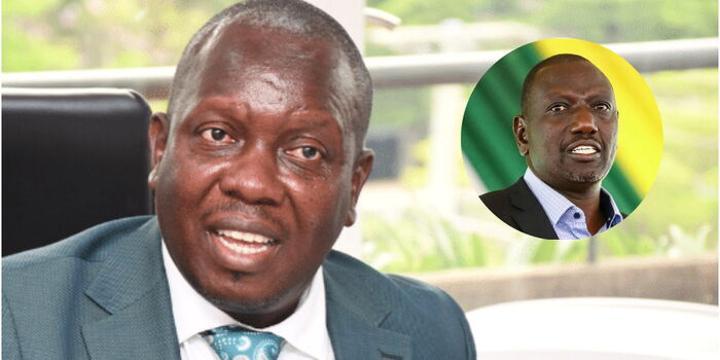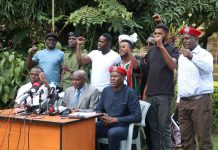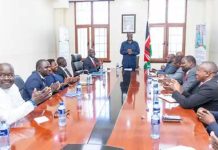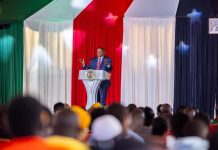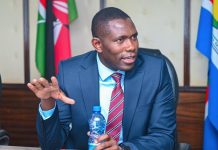Africa-Press – Kenya. Director of Public Prosecutions (DPP) Renson Ingonga has come out to deny claims that the Office of the Director of Public Prosecutions (ODPP) is being controlled by the government.
Addressing the media on Thursday, July 24, Ingonga denied any influence from the Executive, as he maintained the ODPP remained an independent body.
According to the director, prosecution targets individuals purely based on evidence which has been relayed against them.
“The ODPP doesn’t work under any direction or authority. And it doesnt mean that if demonstrations are against the executive when the DPP makes a decision it is from the executive,” Ingonga clarified.
He added, “We make our own decisions based on the law and evidence available.”
His response came amid a wave of criticism aimed towards the ODPP, with sections of activists accusing the body of falsely charging protesters with terrorism.
One of the more recent cases saw seven suspects slapped with terrorism charges following the torching o Mawego Police Station in Homa Bay county.
Two individuals allied to Rigathi Gachagua’s Democracy for Citizens’ Party (DCP) were also facing terrorism charges earlier in July, with prosecution alleging that they coordinated attacks and incited youth to violence.
While critics have argued that the ODPP has been misusing counterterrorism laws to stifle dissent, Ingonga defended some of the charges which have been slapped on a number of suspects from the three wave of protests between June 17 and July 7.
He added, “Terrorism is not just about bombing if you’ve read the Act,” he said. “If you make acts that are endangering human life and government installations, that is an act of terrorism. That is why we are able to charge people under that Act.”
The Preventon of Terrorism Act was passed by Parliament in 2012 and strengthened through ammendments in 2014. The act defines terrorism as “any action that causes serious harm to a person or property, endangers life, or disrupts essential services, including attacks on public infrastructure or planning such acts”.
The act It also criminalises the facilitation, financing, incitement, or recruitment into terrorist organizations, with penalties ranging from long-term imprisonment to life sentences.
Ingonga further observed that the criticism on the ODPP was likely because cases of ordinary Kenyans being charged with terrorism has been at a minimum since 2014.
“It does not mean that when a law has not been applied for sometime it stops being a law,” he asserted.
For More News And Analysis About Kenya Follow Africa-Press

